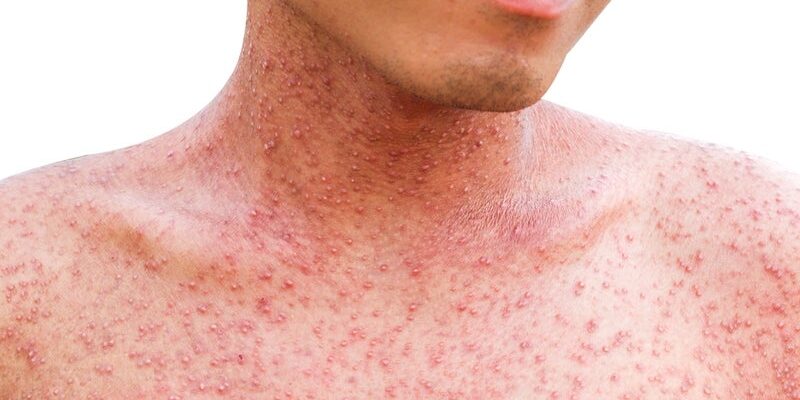Measles, or rubeola, is caused by a self-limiting virus, meaning the body can typically fight off the infection without the need for specific medication. Antibiotics like amoxicillin are ineffective against measles since it is a viral infection. However, supportive care and symptom management are crucial to ensuring a more comfortable recovery.
Steps to Manage Measles Symptoms
- Manage Fever. For fevers above 38°C (measured under the armpit), paracetamol (500 mg) can be taken every six hours to reduce fever and provide relief. Always follow the recommended dosage.
- Stay Hydrated. Drinking plenty of fluids is essential to prevent dehydration, which can worsen symptoms. Warm liquids, such as broths or soups, can also help soothe a sore throat and ease coughing.
- Care for Red Eyes. If red or irritated eyes are present, gently clean them with a cotton ball dipped in lukewarm water. Avoid rubbing or scratching the eyes to prevent further irritation or infection.
- Reduce Light Sensitivity. Measles can cause light sensitivity, particularly in the early stages. Stay in dimly lit environments and use curtains to reduce glare. Protect your eyes from direct exposure to bright light.
- Seek Medical Attention for Complications. Consult a doctor if severe symptoms or complications arise, such as difficulty breathing, coughing up blood, a high fever above 40°C lasting more than 24 hours, ear pain, or unusual symptoms.
- Avoid Spreading the Virus. Refrain from going to work, school, or public places while infected to prevent spreading measles. Avoid contact with unvaccinated individuals, especially children and pregnant women, who are at higher risk of complications.
Prevention and Vaccination
The best way to prevent measles is through vaccination. The measles, mumps, and rubella (MMR) vaccine is highly effective in preventing the virus. Ensuring that you and your family are up to date with vaccinations is crucial to minimizing the risk of contracting or spreading measles.
When to Seek Medical Help
While measles often resolves on its own, it can sometimes lead to serious complications such as pneumonia, ear infections, or encephalitis (brain inflammation). Seek immediate medical attention if you notice symptoms such as extreme lethargy, persistent high fever, breathing difficulties, or any other concerning signs.
Measles is a highly contagious disease, so early isolation and proper care are essential for recovery and preventing the spread of the virus to others.


